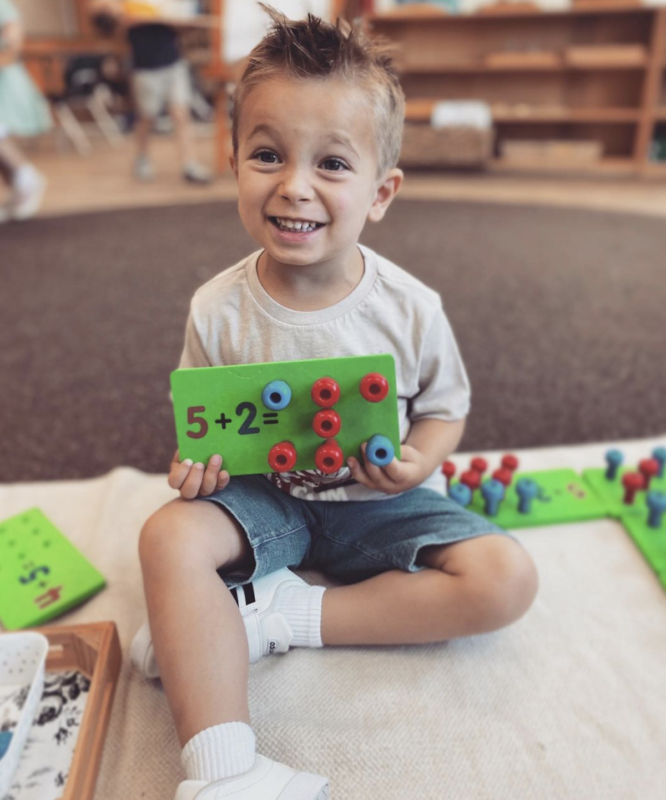Welcome Prospective Parents
Welcome to Fountain Valley Montessori! Thank you for taking the time to learn more about Fountain Valley Montessori. Each day at our school is an exciting new opportunity to enrich the minds of our students, and we hope your child will join us.
Fountain Valley Montessori welcomes students regardless of race, gender, national and ethnic origin, and is non-discriminatory in all our policies. We accept children between the ages of 2 and 9 years old.
There are no specific academic entrance requirements; however, we base admission decisions on many factors, especially your child’s age and suitability for our program.
Please schedule your personal tour of our school. We will be happy to answer your questions and provide additional information about our educational programs.
Our Process
The process begins with your school tour to visit our school. Following your tour and meeting at our school we invite you to observe one of our classrooms to see how our certified Montessori instructors interact with our students. You’ll notice how well the children interact and self-direct their activities, sharing with others and learning at their own pace.
Registration
Tuition and Hours
New Enrollment Paperwork
Parent Handbook
Have A Question?
We tried to think of everything, but if you have a question please let us know! We aim to respond to all inquiries quickly, with our office being open Monday to Friday, 7 a.m. to 6 p.m.
(714) 593-8333
Frequently Asked Questions
What is a Montessori School?
A Montessori school is a special place for the child to cultivate his/her own natural desire to learn. The Montessori philosophy for child development was first formulated by Dr. Maria Montessori, an Italian physician, during the early 1900s. Dr. Montessori’s program for education focuses on the natural development of the whole child from birth through maturity. The concept allows children to experience the joy of learning at an early age and provides an environment in which intellectual, moral, creative, physical, and social growth flourish.
What is the Child’s Work?
Children have a sense of the worth and value of what they desire. They choose all activities eagerly and spontaneously, and become totally involved. The work process involves attaining skills, refining and developing their senses, building concentration, problem solving, self-esteem, and achieving new insights.
What are “Sensitive Periods”?
Sensitive age periods are described as periods when the child shows unusual capabilities in acquiring specific skills. Another name for this phenomenon might be formative years. This is the time during which a child is psychologically attuned to acquire given ideas or skills more readily than at any other period.
What are the Advantages of Ungraded, Mixed Age Classes?
A child can work with older children in one subject, younger children in another, and still have social interaction with children his or her own age. Mixed age groups permit younger children a graded series of models for imitation, and older children have the opportunity to reinforce their own knowledge by helping the younger ones.
Why are Montessori Children Generally More Self Confident, Outgoing and Self-Reliant?
Montessori is based on a profound respect for the child’s personality. The child works from his own free choice and is allowed a large measure of independence. This forms the basis of self-discipline. As each child progresses at his own pace and successfully completes the self-correcting exercises, he develops confidence in his ability to understand his accomplishments.
What is the Montessori Concept of Discipline?
Dr. Montessori noted that many so-called undisciplined children were really frustrated by the lack of proper stimulation and an inadequate opportunity to achieve. She noted that young people became happier and more self-controlled after a period of time in a Montessori class. They experienced challenging tasks which not only absorbed their energies, but resulted in a sense of achievement.
Objectives
The Montessori approach is designed to assist the child in acquiring the social skills and self-confidence which are needed to fulfill his own potential. This is accomplished by building on interests, nurturing enthusiasm and making activities available to fit individual needs.

